Cargo (2017)
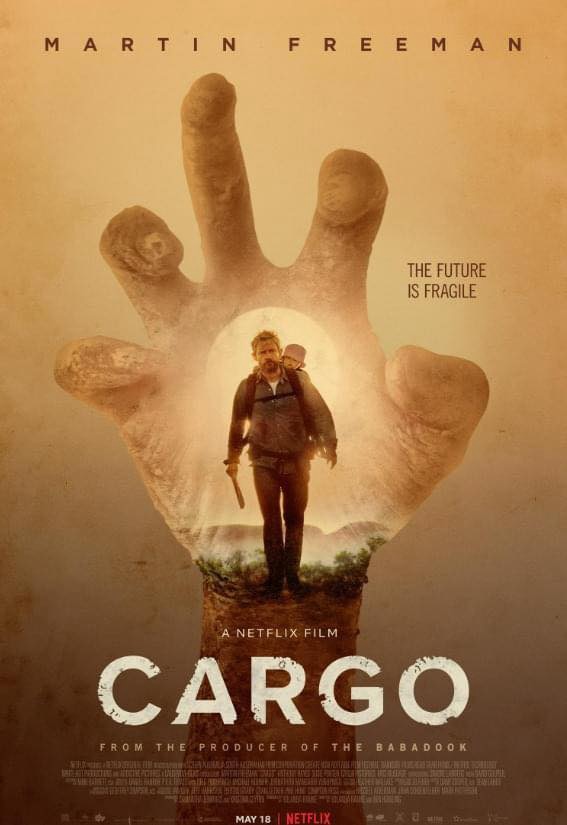
Cargo (2017) is an Australian post-apocalyptic film that stands out in the genre for its emotional depth and unique take on survival in a world ravaged by a virus that turns people into violent, zombie-like creatures. Directed by Ben Howling and Yolanda Ramke, and based on their 2013 short film of the same name, Cargo tells the story of Andy (Martin Freeman), a father who is trying to protect his infant daughter in the aftermath of a pandemic that has devastated humanity.
Suggested videos for you:
Plot Overview
The film begins with a horrific outbreak of a virus that spreads rapidly, turning infected individuals into feral creatures. After a traumatic event, Andy, who is bitten during a desperate attempt to find safety, has only 48 hours before he succumbs to the virus himself. His primary goal becomes keeping his daughter safe from the deadly infection before he too turns into one of the infected. This leads him on a heartbreaking journey through the wilderness of Australia, seeking out any survivors who might offer a chance for his daughter’s survival.
Along the way, Andy encounters a wide range of characters, each affected differently by the outbreak, from hostile survivors to those who have found a semblance of peace. His path intersects with a young girl named Thoomi (Simone Landers), who also struggles to care for a loved one, providing a parallel storyline of loss, survival, and hope.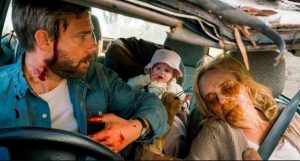
Themes
At its core, Cargo is about the human condition in the face of devastation. The film explores the emotional toll of survival, the relationship between parents and children, and the relentless nature of the disease that destroys everything in its path. One of the most compelling aspects of Cargo is its focus on family. Andy’s love for his daughter drives him through impossible odds and sacrifices, and the film continually asks the audience to consider what lengths a parent will go to in order to protect their child.
The film also deals with themes of isolation, both physical and emotional. Andy’s journey is one of loneliness, as he realizes that no one can truly be trusted in the apocalypse. Despite this, the film balances its darker elements with moments of hope and humanity, as Andy bonds with Thoomi, and they begin to help each other navigate the horrors of the world around them.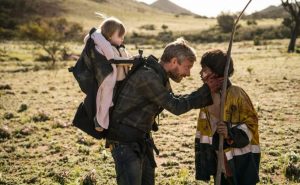
Characterization and Performances
Martin Freeman, known for his roles in The Hobbit and Sherlock, delivers an exceptional performance as Andy. His portrayal of a father trying to shield his daughter from an unthinkable fate is both tender and heart-wrenching. Freeman’s emotional depth adds gravity to the film, making Andy’s plight all the more relatable and devastating.
Simone Landers as Thoomi brings a strong, complex presence to the film. She plays a character who is not only surviving but also facing the psychological challenges of caring for an infected loved one. The connection between Freeman and Landers creates an emotional through-line, giving the film a sense of shared experience despite the vast differences in their situations.
The supporting cast, including Anthony Hayes as Vic, a more ruthless survivor, and Susie Porter as the morally ambiguous Caroline, all help to flesh out the bleak world of Cargo. Each character represents a different survival strategy or moral compass, and their interactions with Andy and Thoomi challenge the audience to consider what actions are acceptable when the world falls apart.
Cinematography and Direction
The cinematography in Cargo is stunning, showcasing the stark beauty of the Australian landscape, which is both a source of refuge and danger. The vast wilderness serves as a backdrop for Andy’s journey, emphasizing the isolation of the characters and their struggle to find safety. The film’s pacing is deliberate, allowing the tension to build gradually as Andy’s infection progresses. The directors create a sense of foreboding throughout, but the emphasis remains on the emotional stakes rather than the typical shock value of horror films.
One of the most striking visual choices in Cargo is the film’s depiction of the infected. The infected are not the traditional fast-moving zombies; instead, they are portrayed as slow and unrelenting, which gives the film a more grounded, eerie atmosphere. This approach enhances the tension, as Andy must constantly be aware of the threat around him while trying to protect his daughter.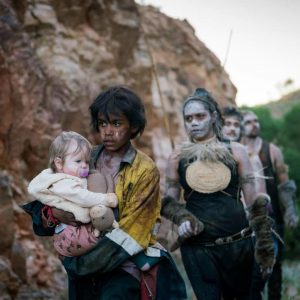
Sound Design and Score
The sound design in Cargo is subtle but effective, using ambient noises to build tension. The score, composed by Michael Lira, complements the film’s somber tone, utilizing minimalistic music to evoke feelings of sorrow and desperation. There are moments of silence that amplify the gravity of the situation, allowing the visuals to speak for themselves.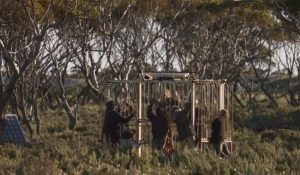
Final Thoughts
Cargo is a standout in the crowded field of post-apocalyptic films. What sets it apart is its emotional core—rather than focusing on action or gore, the film prioritizes the human experience, exploring grief, sacrifice, and the lengths we go to protect those we love. It’s a quiet, contemplative film about survival in a world where the apocalypse isn’t just about the collapse of civilization, but the collapse of what makes us human.
The film may not be for everyone, as it moves at a slower pace and doesn’t rely on traditional horror tropes. However, those looking for a thought-provoking, emotionally charged take on the genre will find Cargo to be a haunting and beautiful experience.
In the end, Cargo is more than just a zombie film. It’s a meditation on love, loss, and the unbreakable bond between parent and child, wrapped in a hauntingly beautiful package. It’s a reminder that even in the darkest times, there is hope, and in the face of overwhelming odds, humanity still finds a way to endure.











